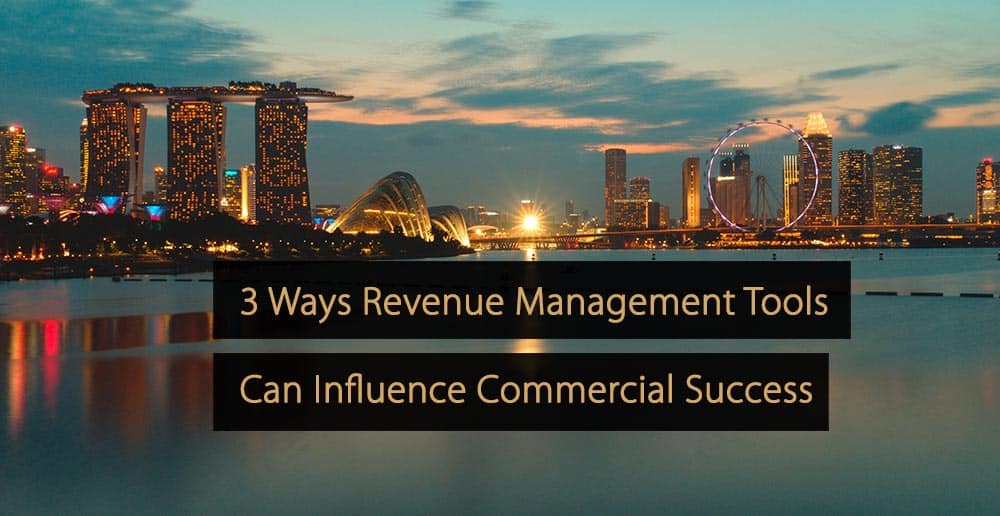As a hotelier, making sense of your data is not a simple task. It often involves consolidating information across multiple systems to understand guest preferences, improve the financial health of your business, and proactively plan for the future.
Hospitality-Focused BI Tools vs. Generic Options
Business intelligence (BI) software has become an indispensable tool for hoteliers looking to make informed decisions and optimize their operations. While generic BI tools are commonly used and offer many features, hospitality-focused solutions provide specialized functions that can significantly improve a hotel’s performance and elevate the guest experience.
In this article, we will explore the differences between generic and hospitality-focused BI solutions and the benefits that a dedicated tool brings to hotels.
The Importance of Business Intelligence Software
Business intelligence software plays a crucial role in helping hotels leverage their data effectively. By consolidating and analyzing information from various sources, such as hotel PMS systems, revenue management systems (RMS), and payment gateways, BI tools empower hoteliers to make strategic decisions based on accurate, up-to-date insights.
Here are a few other benefits of using business intelligence software.
1. Assessing Performance for Better Decision-Making
A key advantage of BI software is its ability to help organizations visualize performance data efficiently. Customizable dashboards and reports provide quick access to key metrics, including booking windows, average length of stay, revenue per available room (RevPAR), satisfaction levels, occupancy forecasts, and housekeeping efficiency.
2. Streamline Data Collection
Traditional methods of gathering data tend to be inefficient and susceptible to mistakes. BI solutions simplify this process by automatically gathering and integrating data from various systems. This automation not only saves time but also reduces the likelihood of data inconsistencies, ensuring that managers always have access to accurate, up-to-date information.
4. Maximize Revenue and Profitability
With advanced analytics capabilities, a BI tool can significantly improve revenue management efficiency. By leveraging historical data, market trends, and competitor analysis, hoteliers can optimize pricing strategies to maximize revenue and occupancy.
Additionally, a BI tool can identify patterns in booking behavior and highlight high-performing sales channels, enabling hoteliers to allocate resources where they will have the greatest impact on profitability.
5. Enhance the Guest Experience
BI software can provide insights into guest preferences, booking patterns, and feedback, allowing hotels to tailor their offerings to meet guest expectations. For example, by analyzing guest reviews and survey responses, hotel operators can pinpoint areas for improvement, such as room amenities or customer service. With a deeper understanding of guest needs, hotels can create personalized experiences that foster loyalty and drive repeat business.
3 Differences between Generic & Hospitality-Focused BI Solutions
While generic BI tools offer many features, they often don’t meet the specific needs of the hospitality industry. In contrast, hospitality-focused solutions are tailored to address the unique requirements of hoteliers.
1. Data Mapping
Generic BI tools often lack the flexibility to map data fields relevant to hospitality, leading to time-consuming manual data manipulation. Hospitality-focused solutions, however, are pre-configured with industry-specific data fields, eliminating the need to extract, transform, and load (ETL) data, making it easier to analyze and report on essential metrics.
2. Collaboration
Many generic BI tools have siloed functionalities that hinder cross-departmental collaboration and can be costly to share due to per-user pricing models. Hospitality-focused solutions offer more inclusive collaboration features, facilitating seamless information sharing between departments.
3. Reporting
While generic BI tools may provide static reporting capabilities, they often lack the customization and granular filtering that hoteliers need. Hospitality-focused solutions offer flexible reporting features, allowing users to create tailored reports that meet specific business requirements.
5 Reasons to Choose a Hospitality-Focused BI Solution
1. Built into the PMS
One of the standout features of a hospitality-focused BI solution is its seamless integration with the PMS. This integration eliminates the need for manual data transfers and ensures that data is up-to-date and accurate. By having BI capabilities built into the PMS, hoteliers can access real-time insights without switching between multiple platforms, making it easier to monitor performance and respond to changes quickly.
2. Customizable Reports & Data Visualization
A hospitality-specific BI solution offers customizable reports and data visualization options tailored to hotels’ unique needs. Operators can create bespoke dashboards that highlight key performance indicators relevant to their property and update them in real-time so that when the report changes, the visualization will as well.
This flexibility enables hotels to focus on the metrics that matter most to their business, facilitating faster and more effective decision-making.
3. Multi-Property Reporting
For hotel groups and chains, a hospitality-focused BI tool provides multi-property reporting capabilities that are not typically found in generic solutions. This feature allows operators to analyze performance across different locations, compare KPIs, and identify trends at both the property and portfolio levels. Multi-property reporting is essential for understanding the strengths and weaknesses of each property, ensuring that resources are allocated optimally.
4. Cross-Departmental Collaboration
With a hospitality-focused BI solution, all departments—revenue management, marketing, operations, and finance—can access the same data set, fostering collaboration and alignment. This unified approach ensures that every team works towards the same goals, using consistent data to inform their decisions. Cross-departmental collaboration is especially important in hospitality, where operational efficiency and guest satisfaction depend on seamless communication.
Users can also share reports with external stakeholders or operational teams while restricting access to the system. This ability to share updates without creating new users improves security while increasing transparency.
5. Extractable Data
Unlike generic BI solutions, a hospitality-specific BI tool allows for easy data extraction, enabling hoteliers to get creative and build custom workflows and automation with existing tools. Using open APIs, hoteliers have the flexibility to use their data as they please, enabling faster processes for real-time updates.
Investing in a Tailored Solution
In a data-driven world, choosing the right business intelligence solution is critical for a hotel’s success. While generic BI tools offer basic insights, a hospitality-focused BI solution is designed specifically for the unique needs of the hotel industry. From built-in PMS integration and customizable reporting to cross-departmental collaboration and extractable data, a hospitality-specific BI tool provides hoteliers with the insights they need to optimize performance, enhance guest satisfaction, and drive profitability.
Free Report: The State of Independent Lodging Report 2024
In this free report, you will find a wealth of data from across the globe, including data from property types and segments often overlooked, to deliver key insights on independent lodging businesses.
You’ll find answers to pressing questions like the current state of recovery, booking behavior post-pandemic, and the travel trends most influencing consumer behavior.
Click here to download the report ” The State of Independent Lodging Report 2024“.
More Tips to Grow Your Business
Revfine.com is the leading knowledge platform for the hospitality and travel industry. Professionals use our insights, strategies, and actionable tips to get inspired, optimize revenue, innovate processes, and improve customer experience.Explore expert advice on management, marketing, revenue management, operations, software, and technology in our dedicated Hotel, Hospitality, and Travel & Tourism categories.








Leave A Comment